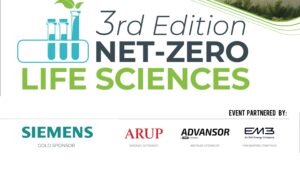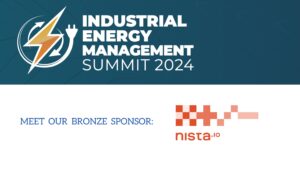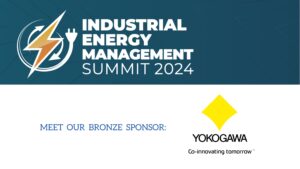Corporations in their drive to cut down on greenhouse gas emissions and combat climate change are faced with the difficult challenge of addressing scope 3 emissions from the value chain. One large contributor to these indirect emissions is the operations of small and medium enterprises (SMEs). These act as suppliers, vendors, or service providers. So, a key step in comprehensive Scope 3 reporting and Scope 3 emission reduction strategies is how we engage and integrate these SMEs. However, this move has many obstacles. It includes resource limitations, lack of knowledge on the subject matter as well as the quality of data received.
In this article, we will look into practical ways to overcome this problem. This is by encouraging teamwork and giving confidence to SMEs. This is so that they can become active partners in the pursuit of a sustainable future. So, Let’s dive in.
The Significance of SMEs in Scope 3 Emission Reduction
It is often the case that larger corporations attract attention to their impact on the environment. Yet, SMEs make an essential contribution towards global sustainability. About half of the total economic output, employment, and resource consumption are contributed by SMEs. As a result, their aggregated effect on greenhouse gas emissions is significant.
Small businesses may seem to occupy less space than large companies but it is not unusual for them to have deep links with supply chains and value chains of big firms. They are responsible for scope 3 emissions through multiple activities. It includes manufacturing, transport, energy use, and waste disposal. So, failure to include SMEs or even forget about them in scope 3 accounting can lead to incomplete and incorrect emission records. As a result, it can hinder efficient climate action.
To have a robust carbon accounting system and change beyond sustainability across value chains, there is a need for SMEs’ involvement in Scope 3 emission reduction. In their journey towards being sustainable enterprises, assistance also needs to be given. This is by larger companies so that a snowballing effect can take place by multiplying their climate initiatives while at the same time contributing towards more sustainable economies globally.
Challenges in Engaging SMEs for Scope 3 Emissions Reporting
Involving subject matter experts (SMEs) in managing Scope 3 emissions or Scope 3 emission reduction is crucial. However, some obstacles hinder participation and data collection. Moreover, recognizing these challenges is essential, for crafting strategies to address them. So, let’s take a look:
Resource Limitations
A challenge for SMEs revolves around resources both in terms of finances and human capital. Many small businesses lack sustainability departments or staff. So, they often prioritize day-to-day needs over environmental initiatives. As a result, finding the resources for measuring, reporting, and reducing emissions can be tough. This is especially true when the immediate benefits aren’t readily apparent.
Lack of Expertise and Understanding
For SMEs grappling with the complexities of greenhouse gas accounting and reporting standards can be overwhelming. Access to training or knowledge is necessary for these companies. It is to grasp the nuances of calculating scope 3 emissions and collecting data effectively. It also helps to meet the reporting criteria. This knowledge gap could result in incomplete emission data undermining the impact of scope 3 reporting endeavors.
Differing Levels of Environmental Awareness
SMEs operate across industries and regions, with differing levels of consciousness and regulatory demands. While some businesses actively embrace practices others may have awareness or motivation. This is to prioritize emission reductions. Engaging medium enterprises (SMEs) throughout a complex value chain can be difficult. The reason is the uneven nature of the playing field.
Data Accessibility and Quality
Actual, reliable, and consistently collected emissions data for SMEs is often difficult to obtain. The relative size and/or particular activities of many smaller companies might make rigorous data collection relatively difficult or, at best, incomplete. Moreover, consistency in data collection might be a particular problem. This is because smaller companies often might not even have standardized reporting processes in place. Additionally, SME supplier privacy and confidentiality concerns too can hinder the gathering of emissions data.
Understanding these challenges will give companies and other actors a better ability to design strategies. It will also give solutions for responding to SMEs’ specific engagement challenges and needs.
Strategies for Engaging SMEs in Scope 3 Emissions Reporting
SME participation presents several issues that must be addressed through a multifaceted strategy. It includes technology solutions, incentives, cooperation, and education. By utilizing these tactics, businesses may encourage a sustainable culture across their value chains. They can also enable SMEs to participate in group climate action. So, let’s see those strategies in depth:
Provide Guidance, Training, and Resources
The best way to drive the adoption of scope 3 reporting by SMEs could be through building guidance and support. It includes providing comprehensive training and resources such as:
- Creating user-friendly tools and templates for making the calculations of emissions and for reporting these, adapted to the level of capabilities for SMEs.
- Organizing workshops, webinars, or online training sessions. This is to train SME suppliers in greenhouse gas accounting, reporting standards, and best practices.
- Working with industry associations, local chambers of commerce, or NGOs focused on sustainability. It is to deliver training sessions and disseminate resources more effectively.
- Offering access to subject matter experts or specialized channels accessible along the way of reporting. It is to answer SMEs’ questions and concerns.
Educating SMEs on the tools and methodology, and simplifying data reporting systems reduce the knowledge deficit. It also supports suppliers to collect and report their emissions data with greater fidelity.
Collaborate and Foster Partnerships
Reporting on scope 3 emissions from SMEs is not a monologue, but a dialogue and a partnership. SME suppliers can be brought together and facilitated to share good practices, key obstacles, and innovative solutions. This is within established collaborative platforms or forums. This sense of community of practice can help corporations share wisdom. It can also drive expectations of responsible behavior throughout their value chains.
Moreover, corporations might consider engaging with local or regional value chain actors. It includes industry clusters, technology hubs, or sustainability networks. This is to harness existing infrastructure and centers of support for SMEs, to learn from, access, or scale specific expertise, or to launch joint pilots and programs related to scope 3 management.
Offer Incentives and Recognition
Companies can use incentive programs and recognition systems to encourage SMEs. This is to prioritize emissions reporting and reduction efforts. These could consist of:
- Contract extensions or preferential treatment for suppliers with high emissions reporting and sustainability performance.
- Public acclaim or prizes for SMEs carrying out creative sustainability projects or significantly cutting emissions.
- Financial rewards for SMEs who fund initiatives or technology aimed at reducing emissions, such as refunds, discounts, or co-investment possibilities.
- Participation in programs for sustainable procurement or preferred supplier lists. It expands the commercial prospects available to law-abiding SMEs.
Corporations may incentivize small and medium-sized enterprises (SMEs). It prioritizes emissions control and also cultivates a continuous improvement culture across its value chains. This is by establishing a positive feedback loop for sustainable behavior.
Leverage Technology Solutions
Simplifying scope 3 emissions data collection and administration through technology is essential. This is especially true when working with several SME suppliers. Moreover, businesses can investigate and use a range of technology options. It provides accurate and efficient reporting, including:
- Online tools or portals that make it simple for SMEs to submit emissions data and related paperwork. As a result, it minimizes the need for human data entry and guarantees consistency.
- Systems for automated data validation and verification are used to find possible mistakes or discrepancies in reported emissions data.
- For smooth data interchange, emissions reporting can be integrated with current enterprise resource planning (ERP) or supply chain management systems.
- Application of blockchain technology to improve emissions data audibility, traceability, and transparency throughout the value chain.
- The use of machine learning (ML) and artificial intelligence (AI) algorithms. It analyzes emissions trends, locates hotspots, and offers data-driven insights for focused reduction initiatives.
Businesses may increase overall efficiency by including SMEs in scope 3 emission reduction. It can also improve data quality and expedite the reporting process by adopting cutting-edge technical solutions.
Foster a Culture of Sustainability
Beyond particular tactics, businesses should work to promote a sustainable culture across their value chains. This may be accomplished by:
- Elucidating the significance of scope 3 emission reduction and the company’s dedication to environmentally friendly operations.
- Setting an example by being open about disclosing the company’s emissions and advancements made towards climate targets.
- Encouraging open communication and feedback loops with small and medium-sized suppliers. This is to learn about their difficulties and obtain information for ongoing development.
- SMEs can be encouraged and motivated to prioritize emissions reduction efforts. It is by recognizing accomplishments and exchanging best practices.
- Signalling the company’s long-term commitment to sustainable value chains, procurement procedures, and supplier selection criteria should incorporate sustainability concerns.
Businesses may establish a positive feedback loop that motivates SMEs to take up environmental responsibility and participate in group climate action by cultivating a culture of sustainability.
Overcoming Data Quality Challenges in SMEs
Data Quality is one of the main challenges even after consistent efforts. Inaccurate or incomplete data can undermine the whole process. It can also restrict decision-making on emission reduction. So, let’s see how to overcome these challenges:
Implementing Data Quality Assurance Processes
Businesses should have strong data quality assurance procedures in place to handle data quality issues. These might consist of:
- Defining precise criteria for data submission and validation. It guarantees the accuracy and consistency of reported emissions data.
- Conducting routine audits or spot checks on a subset of small and medium-sized suppliers. It confirms the veracity of supplied data and finds any inconsistencies.
- Put in place automatic data validation mechanisms that alert investigators to any mistakes, anomalies, or discrepancies in reported emissions data.
- Giving SMEs feedback channels and plans for corrective action. It handles problems with detected data quality and guarantees ongoing progress.
Businesses may improve the dependability and credibility of their scope 3 emissions reporting activities by giving data quality assurance top priority.
Leveraging Third-Party Verification and Certification
Businesses might look into third-party verification and certification services if issues with data quality continue or if external validation is needed. These autonomous groups are capable of:
- Perform thorough evaluations and audits of the emissions data and reporting procedures used by SME suppliers.
- To provide legitimacy and transparency to the process, certify or validate the reported emissions data.
- Provide suggestions and direction for enhancing data quality and complying with legal or industry requirements.
Involving third-party verifiers may help Scope 3 emissions reporting become more credible while also offering insightful analysis and direction for ongoing development in Scope 3 emission reduction.
Adopting Hybrid Calculation Methods
When precise supplier-specific data is either unobtainable or untrustworthy, businesses might utilize hybrid calculation techniques. These blend real data with industry averages or estimating models. Furthermore, these techniques might consist of:
- Spend-based emissions calculations – These compute emissions using industry- or product-specific emission factors in addition to the monetary value of purchased products and services.
- Computations of mass-based emissions. It calculates emissions according to the amount or weight of items purchased and the corresponding emission coefficients.
- Finding data gaps or discrepancies. This is by combining supplier-specific data with industry averages or estimating methods.
Hybrid calculation techniques can give a good estimate of scope 3 emissions, even if they are not as accurate as supplier-specific data. This allows companies to prioritize their efforts toward reducing emissions. It also gradually increases the quality of their data.
Businesses may handle issues with data quality and preserve the integrity of their Scope 3 emissions reporting efforts. This is by combining third-party verification, hybrid calculating techniques, and data quality assurance procedures.
To Sum Up
SMEs must be welcomed as essential partners in a cooperative and inclusive strategy. It helps to effectively navigate the challenges of scope 3 emissions control. Moreover, corporations can enable even the smallest suppliers to measure and report their emissions data properly. This is by leveraging technical solutions, promoting open communication, offering incentives, and providing assistance. Furthermore, engaging SMEs becomes essential to meeting aggressive emissions reduction objectives. It also brings about significant change towards a low-carbon, resilient future for everybody. This is as companies continue to prioritize climate action.
If you are interested in making your Scope 3 emission reduction efforts stronger, attend the 2nd Scope 3 Emission Reduction Summit. It takes place in Berlin, Germany, April 18–19, 2024. The attendees will be able to network with experts, decision-makers, and leaders in the industry. Moreover, they will share cutting-edge insights, best practices, and creative approaches to successfully incorporate SMEs into your Scope 3 emissions management strategy. So, join the effort that will influence scope 3 emissions reduction in global value chains by registering today.





